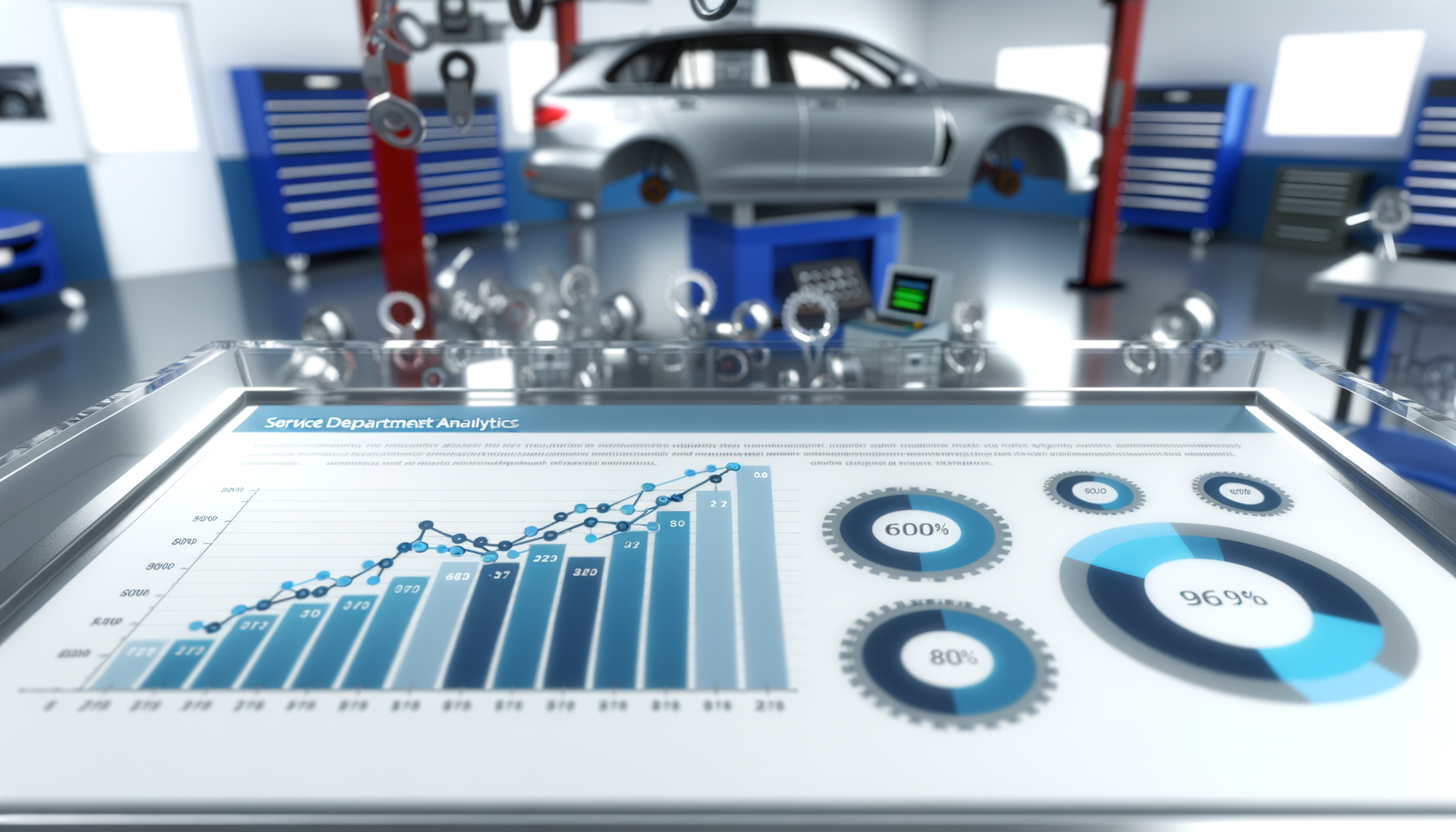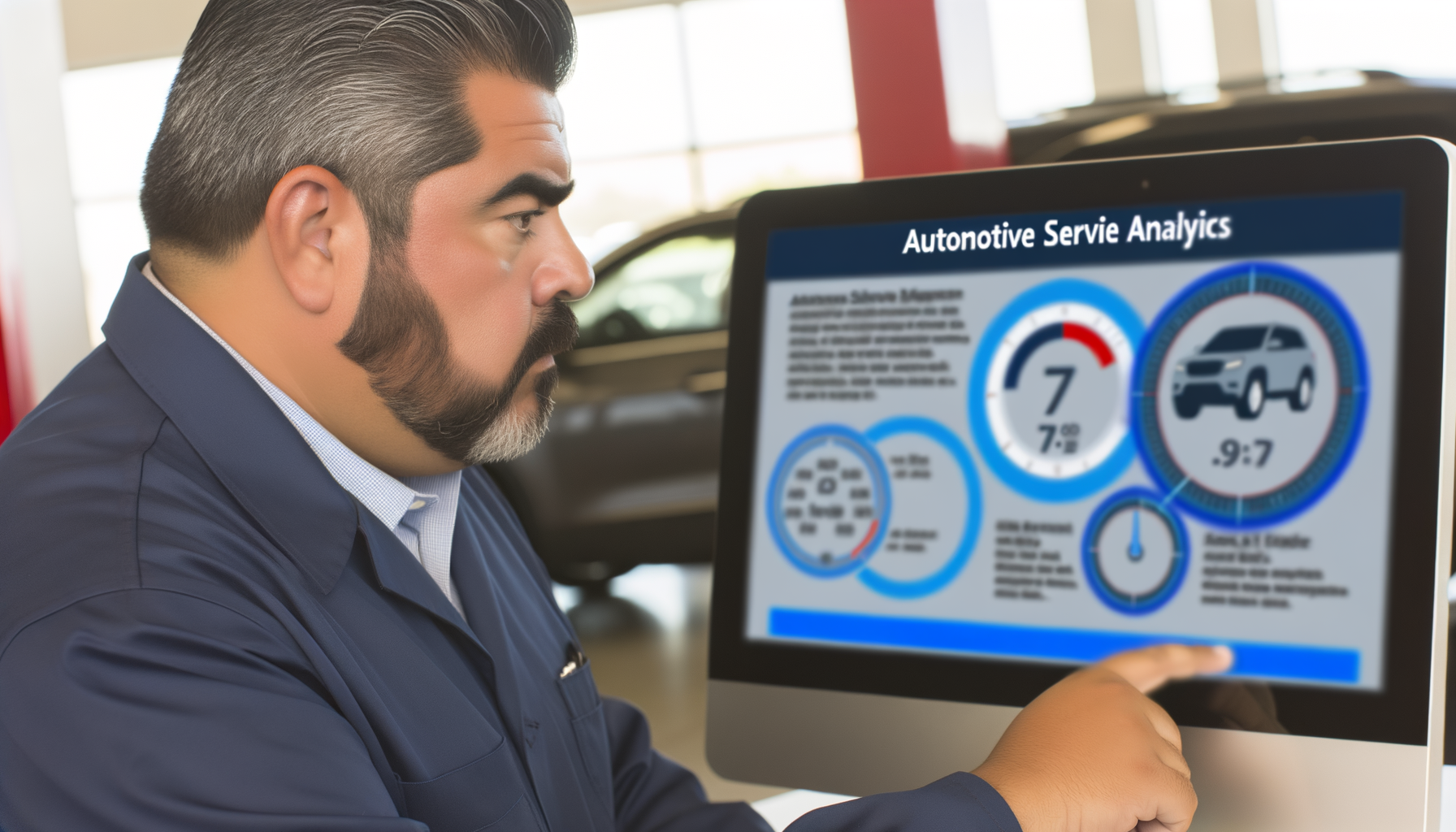Data-Driven Pit Stops: Revolutionizing Auto Service with Precision Analytics

Introduction to Service Department Analytics

In 2025, the automotive service industry is increasingly reliant on data analytics to drive decision-making. With a 15% increase in EV-related repairs, understanding customer trends and service efficiency is more crucial than ever.
Data analytics empowers service managers to identify bottlenecks, optimize resource allocation, and enhance customer satisfaction. However, the challenge lies in navigating vast data sets to extract actionable insights.
Implementing a robust analytics framework starts with understanding the specific needs of your dealership and establishing clear objectives. This section explores the foundational elements of service department analytics.
Key Metrics for Service Department Success

To gauge the success of your service department, focus on critical metrics such as average repair time, customer retention rate, and technician productivity. Each metric offers insights into specific areas of improvement.
For instance, a high average repair time might indicate inefficiencies in workflow or resource constraints. By setting benchmarks and comparing against industry standards, service managers can pinpoint areas requiring attention.
Implement strategies to regularly track these metrics using dashboard tools and real-time reporting systems. This proactive approach enables timely interventions and continuous improvement.
Leveraging Predictive Maintenance Analytics

Predictive maintenance is revolutionizing how service departments approach vehicle repairs, minimizing downtime and enhancing customer satisfaction. By analyzing historical data and vehicle telematics, dealerships can forecast maintenance needs.
A study shows that predictive analytics can reduce unexpected breakdowns by 30%, offering significant cost savings. Implementing this requires integrating IoT devices with your analytics platform.
This section details the step-by-step process of deploying predictive maintenance, from selecting the right technology to training staff on data interpretation.
Benchmarking Against Industry Standards

Benchmarking is essential for understanding how your service department stacks up against competitors. It involves comparing key metrics to industry averages to identify gaps.
For example, dealerships with a below-average customer satisfaction score might need to revisit their service workflow or customer interaction protocols.
Establishing a regular benchmarking routine allows service departments to align their strategies with industry leaders, fostering continuous growth and innovation.
Overcoming Common Analytics Challenges

Despite its benefits, implementing service department analytics can pose challenges like data integration complexities and staff resistance to change.
Common pitfalls include data silos and overwhelming information flow, which can hinder decision-making. Address these by fostering a data-centric culture and streamlining data channels.
This section provides solutions to these challenges, offering insights into successful data governance and change management strategies.
ROI Calculation for Service Department Analytics

Calculating the return on investment (ROI) for analytics initiatives is crucial for justifying expenditures and strategic planning. Key factors include increased efficiency, reduced downtime, and improved customer loyalty.
Begin by quantifying the benefits observed from analytics usage, such as reduced repair times or increased first-time fix rates. Compare these against implementation and operational costs.
Using these calculations, service departments can make informed decisions about future analytics investments, ensuring maximum fiscal impact.
Integrating Automation in Service Analytics

Automation is a game-changer for service department analytics, streamlining data collection and analysis processes. This enables managers to focus on strategic initiatives rather than routine tasks.
Automation tools can handle data entry, generate reports, and even flag anomalies for further investigation, enhancing operational transparency and efficiency.
Explore the latest automation technologies and their applications in service departments, along with best practices for implementation.
Best Practices for 2025 and Beyond

As technology evolves, so too must the strategies for managing service departments. Adopting best practices ensures that dealerships remain competitive and customer-focused.
Key practices include continuously updating analytics tools, fostering a culture of data literacy, and staying informed about industry trends like new OEM requirements.
By embracing innovation and adaptability, service departments can turn challenges into opportunities for growth and excellence.
Related Topics
Ready to take your service department to the next level?
Schedule your demo today and experience the power of Auto Pro Solutions.
Schedule Demo